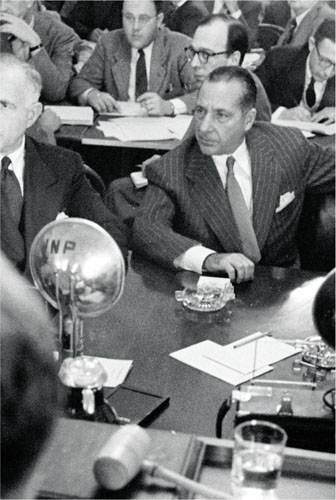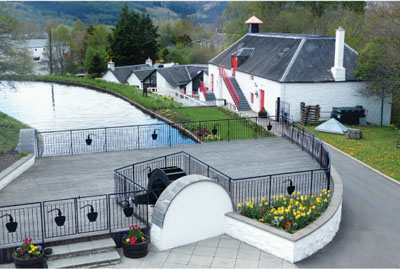
William Whiteley and the Mafia connection
Whiteley’s main business was exporting his whisky brands and other spirits to countries around the world, particularly to America. For any other wine and spirit merchant the prospect of Prohibition must have been daunting but there would always be a way to profit from Prohibition if you were the type of person to strike deals with people of ‘onerous and speculative character’.
Whiteley was certainly not the sort to let an ill-conceived law get in the way of his business. What he needed was a like-minded partner in America, someone who could respond to the increasing demand for high quality illegal whisky. That partner turned out to be the Mafia.
The Temperance movement were responsible for the introduction of Prohibition, they wanted to make America a sober, more Christian society but the irony is that Prohibition was responsible for the greatest expansion of organised crime in American history. The sense of self-righteousness that the country enjoyed immediately following the Act soon diminished as the hard reality of life without wine, beer, and spirits started to dawn on them. The loss of freedom to buy alcohol made the most law-abiding citizens indignant with rage and illegal stills were hastily constructed in the homes of people from all social classes.
Frank Costello at the Kefauver Commission hearing.
The FBI were frustrated because it was the Department of the Treasury, not the Department of Justice that had jurisdiction to enforce the Prohibition laws, which led the period 1921-1933 being labelled ‘The Lawless Years’.
For those with connections, money and the ambition, ‘The Lawless Years’ were a time for prosperity. The Mafia were ideally placed to take advantage of the situation and provide a much sought after service to the community. The police and coastguard officers were as keen as the next person for a drink and it wasn’t long before a system of bribes was established to allow real Scotch whisky and other spirits to land on their shores. Ships laden with alcohol would drop anchor 12 miles off the coast so as to be outside the jurisdiction of any over zealous coastguard official. Smaller, faster boats would then pull-up alongside and move the precious cargo to awaiting trucks at makeshift landing points.
The general route for Scotch whisky was to first land in Canada and then head towards to big cities on the east coast; Boston, New York and New Jersey, from where the loot would be distributed.
Sometimes the whisky would be watered down or mixed with some home-brewed concoction before making its way to the Mafia controlled speakeasies the length and breadth of the country.
Among many others, Joe Kennedy, the father of the future President, was said to have smuggled Scotch into New York during Prohibition with the help of a young man called Frank Costello. Costello was a rising star in the Mafia hierarchy and would ultimately become Capo di tutti Capi, the Boss of Bosses, succeeding Lucky Luciano.
Apart from being the inspiration for Mario Puzo’s character Don Corleone in his book The Godfather, Frank Costello was a visionary gangster and a shrewd businessman who preferred to use bribes rather than violence.
The lawless years of prohibition.
His first reaction to Prohibition was to visit the tiny island of St Pierre just off the coast of Newfoundland. Here, Costello charmed the local Mayor, promised to provide jobs for the local community and agreed to pay a commission per case of whisky that went through the island. Within days warehouses were being built, the pier was strengthened and shipments of whisky started to arrive from Scotland.
Paranoid about the consequences of tax evasion the Mafia weren’t keen on meticulously accurate record keeping, so it is impossible to know how much business Whiteley conducted between 1920 and 1933 with his distributors in America but the fact that Whiteley sold his whisky into America during Prohibition and had a working relationship with Costello is clear from subsequent biographies and court records.
According to one version of events ‘Costello imported so much of their (Whiteley’s) whisky during Prohibition that as a gesture of thanks he was appointed US Sales Consultant on an annual salary of $5000’. Costello’s role as Sales Consultant was to instruct his men to visit bars and clubs in New York and ensure that they stocked Whiteley’s products. No doubt the consequences of not stocking them would have been made clear.

The distillery in the 1930s and how it looks from the top warehouse today.